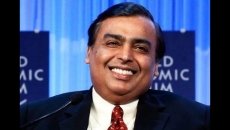As the year draws to a close, it is an opportune time to reflect on your financial journey, assess your current financial situation, and set meaningful goals for the upcoming year. Year-end financial planning is about taking control of your financial health and shaping a more secure future. By setting clear financial objectives and adhering to a well-structured plan, you can navigate life's financial challenges with confidence and achieve financial well-being.
1. Assess Your Current Financial Situation
Before you can plan for the future, it is crucial to have a clear understanding of your current financial situation. Start by examining your income, expenses, debts, and assets. Create a comprehensive overview of your financial health to identify areas that need attention. This assessment provides the foundation for making informed decisions about your financial goals. Financial Advisor Inderjeet Ladhar suggests, "Simply put, we should always spend money after saving, not the other way around."
2. Review Your Budget
Take a close look at your budget to determine where your money is going. Are there areas where you can cut back on expenses or eliminate unnecessary costs? A detailed budget analysis can help you reallocate funds to meet your financial objectives more effectively.
3. Set Financial Goals
Financial planning without clear objectives can be directionless. Financial Advisor Neena Singh details, "The key financial areas to be reviewed not just at the end of the year, but from time to time throughout the year, are your assets, debts, income and expenses. Key short-term goals should include setting a budget, reducing debt and starting an emergency fund. Medium-term goals should include key insurance policies, while long-term goals should be focused on retirement." Well-defined goals provide motivation and a roadmap for your financial journey.
4. Review Your Investments
If you have investments, review your portfolio's performance. Are your investments aligned with your financial goals and risk tolerance? Consider rebalancing your portfolio to ensure it remains on track.
5. Maximize Tax Benefits
Before the year ends, consider strategies to optimize your tax situation. Ladhar advises, "Optimizing RRSP contributions ensures tax savings and government benefits, given the tax-deductible nature of the plan. Simultaneously, planning for an FHSA provides a powerful avenue for first-time homebuyers, leveraging tax credits on saved amounts."

6. Reduce Debt
Managing and reducing debt should be a key component of your year-end financial planning. Singh elaborates, "During these challenging economic times, many of us might be experiencing financial setbacks due to the high-interest environment on mortgages, high rents, and increased expenses." High-interest debts, such as credit card balances, can be a significant financial burden. Create a plan to pay down debt strategically, starting with the highest interest obligations.
7. Emergency Fund
Ladhar points out, "People should always be prepared with emergency funds that they can withdraw at any moment of their life." If you don't already have an emergency fund, or if it is not as robust as you'd like, allocate resources to build this financial safety net. An emergency fund should cover three to six months of living expenses, providing peace of mind in unexpected financial crises.

8. Estate Planning
Year-end financial planning is an ideal time to review your estate plan. Ensure that your will, power of attorney, and beneficiary designations are up to date. If you haven't created an estate plan, consider consulting an attorney to establish one.
9. Insurance Review
Evaluate your insurance coverage, including health, life, home, and auto insurance. Ensure your policies align with your current needs and circumstances. Adjust coverage levels as necessary.
10. Seek Professional Guidance
If you're unsure about your financial planning or investment strategy, it is wise to seek advice from a financial advisor. A professional can provide expert insights and tailored solutions to meet your specific goals. Singh explains, "Meeting a financial planner can help you with your credit planning and free up your cash flow, which will allow you to save for your future and generally help your funds grow faster."
11. Charitable Giving and Tax Deductions
Consider charitable giving as part of your year-end financial planning. Donating to eligible charities not only helps those in need but can also provide you with valuable tax deductions. Ensure your donations are made before the year-end deadline to claim deductions on your tax return.
12. Review Financial Documents
Examine your financial documents, such as bank statements, investment account summaries, and insurance policies. Ensure that all documents are organized and easily accessible. This simplifies your financial management and helps you stay on top of your finances throughout the year.
Year-end financial reflection is a valuable practice for securing your financial future. Financial planning is not merely a means to manage your money; it is a powerful tool that empowers you to seize control of your financial destiny. Remember that your financial journey is a dynamic process, and regular reviews and adjustments will help you stay on course to achieve your objectives. Pave the way for a more secure financial future in the year ahead and ensure that your finances are well-managed and aligned with your goals, providing you with peace of mind and financial security!






